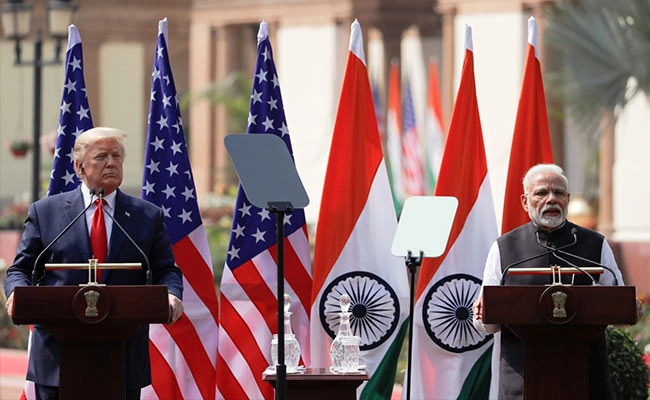The recent announcement of a 25% tariff by the United States has sent shockwaves through the global economy, particularly affecting India’s trade dynamics. The imposition of such a significant tariff not only raises concerns about the economic relationship between the two nations but also poses a challenge for India’s manufacturing sector, which has been striving to enhance its export capabilities. Indian leaders have expressed their apprehension over the potential repercussions of this tariff, as it could lead to increased costs for Indian exporters and make their goods less competitive in the US market.
The economic landscape between India and the US has been characterized by a complex interplay of cooperation and competition. While both nations have worked together on various fronts, including defense and technology, the tariff situation could strain these relations. Indian leaders are particularly worried about the impact on sectors such as textiles, pharmaceuticals, and information technology, which have been vital to India’s economic growth and employment. The fear is that a reduction in exports to the US will not only hurt businesses but could also lead to job losses, creating a ripple effect throughout the Indian economy.
In response to these developments, Indian policymakers are emphasizing the need for dialogue and negotiation to resolve trade discrepancies. They are advocating for a balanced trade relationship that benefits both countries and fosters economic growth. Moreover, Indian leaders are calling for diversification of export markets to mitigate dependency on the US. This move could encourage Indian industries to explore opportunities in other regions, thereby reducing the impact of tariffs and fostering a more resilient economy.
As the situation continues to unfold, the Indian government is likely to analyze various strategies to counter the tariff’s effects. This may involve seeking support from international trade organizations or negotiating trade agreements with other countries to bolster exports. The outcome of these initiatives will be pivotal in determining how India navigates the challenges posed by the US tariff and its broader implications for global trade dynamics. Ultimately, the response to this tariff will not only shape India’s economic future but also redefine its role in the global marketplace.




